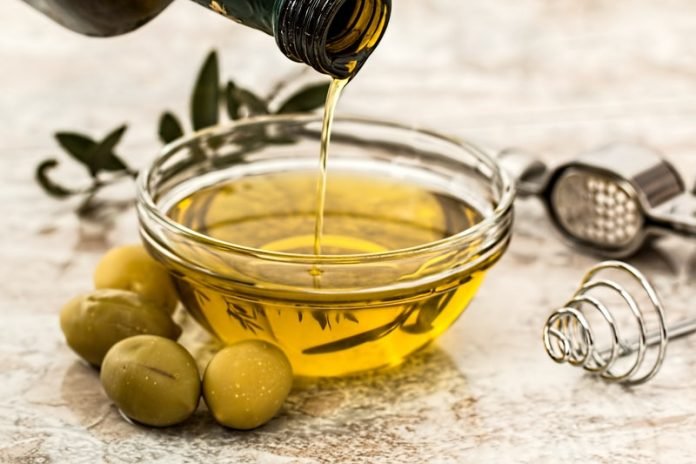
In a new study, researchers have confirmed that orujo (pomace) olive oil (POCTA), when introduced into the diet, could lead to a big reduction in obesity and vascular and inflammatory complications.
In addition, given that POCTA has been obtained from a by-product of olive oil, orujo, which is considered industrial waste,
this study helps to increase its biological and nutritional value as a functional food, being its main source of bioactive compounds, the triterpenic acids.
The research was conducted by a team at the University of Seville and elsewhere.
The team fed mice with two types of diets; a diet high in saturated fats, called “prejudicial” fat, and another, with the same calorie content, but with orujo olive oil.
After 10 weeks, a big reduction in weight was observed (around 30%) in the mice fed with POCTA in comparison with the group fed with the high-fat diet.
This study shows for the first time that POCTA, does not only reduce body weight in obese animals but also reduces body fat (adipose tissue) and hepatic inflammation.
A the same time, it reduces resistance to insulin and vascular dysfunction associated with obesity.
These findings provide very important information about the traditional use of orujo olive oil as a functional food due to its content of triterpenic acids, such as oleanolic acid and maslinic acid as bioactive molecules.
Unlike other types of oils, like coconut or palm oil, the oil obtained from the orujo of the olive, a product forgotten in recent years, has shown itself to be a source of bioactive molecules with great therapeutic potential against obesity and the metabolic dysfunctions developed with Metabolic Syndrome.
The results of this study open a new line of research is examining the Mediterranean diet.
One author of the study is Dr. Rodriguez from the International University of Catalonia.
The study is published in Nutrients.
Copyright © 2020 Knowridge Science Report. All rights reserved.



